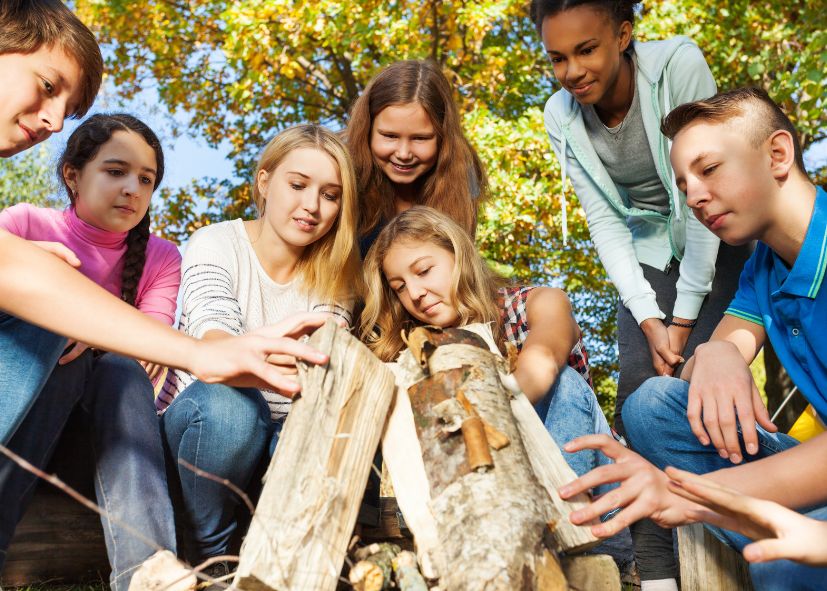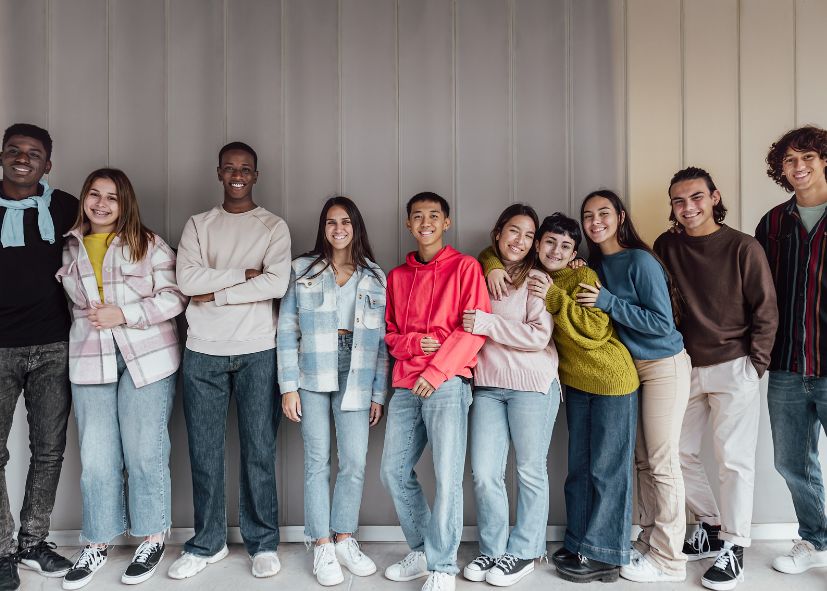Blog
Friendship, Empathy, Communication: Helping Teens Soar In A Social World

Helping Children Build Friendships, Empathy, and Effective Communication
Friendships and social skills play a crucial role in a child’s development. Thus, is it important that we help teens build friendships. Through connections with peers, children learn to navigate emotions, resolve conflicts, and build self-esteem. Teaching empathy and effective communication is essential for helping children form meaningful relationships and thrive socially. Here are strategies to support your child in developing these critical skills:
1. Encourage Active Listening
Active listening is the ability to fully concentrate on what someone is saying, understand their message, and respond thoughtfully. It is a cornerstone of effective communication. This is aided by:
- 1. Maintaining eye contact while someone is speaking.
- 2. Wait for their turn to respond without interrupting.
- 3. Reflect back what they heard by saying, “So you’re saying…”
An example for teens would be: When a friend shares a personal problem, encourage your teen to actively listen and respond with empathy. For instance, if their friend says they’re stressed about exams, your teen might reply, “That sounds overwhelming. How can I support you?”
Practicing active listening helps teens build deeper, more trusting relationships.
2. Model Empathy in Everyday Life

Empathy is the ability to understand and share the feelings of another person. Teens often learn empathy by observing adults. Show your teen how to:
- 1. Recognise and validate others’ emotions.
- 2. Use phrases like, “I understand how you feel” or “That must be hard for you.”
- 3. Offer help when someone is upset or in need.
Example for Teens: Encourage your teen to empathise with a classmate who might feel excluded by saying, “I noticed you’ve been sitting alone lately. Do you want to join us at lunch?”
This helps teens develop emotional intelligence and build stronger connections.
3. Teach Problem-Solving Skills
Problem-solving skills involve the ability to identify an issue, consider possible solutions, and choose the best course of action. Conflicts are inevitable, but they’re also opportunities to teach valuable life lessons. Guide your teen to:
- 1. Identify the problem and how it makes everyone feel.
- 2. Brainstorm possible solutions together.
- 3. Choose a solution that works for everyone involved.
Example for Teens: If your teen is arguing with a sibling over shared space, guide them to compromise by setting boundaries, such as dividing the space equally or taking turns.
Problem-solving skills empower teens to handle disagreements constructively, preserving and strengthening relationships.
4. Foster Inclusive Activities

Inclusive activities mean creating an environment where everyone feels welcomed and valued. Encourage your teen to include others in their plans. Inclusive activities teach teens to:
- 1. Appreciate diversity and different perspectives.
- 2. Collaborate with peers who may have unique needs or preferences.
- 3. Be mindful of how their actions affect others.
Example for Teens: Suggest that your teen invite a new student to join their study group or a team project.
This not only builds friendships but also fosters a culture of acceptance.
5. Use Stories to Teach Social Lessons
Storytelling is a powerful tool for teaching social skills and empathy. Choose stories where characters face social challenges and discuss:
- 1. How the characters might feel in different situations.
- 2. How they solved their problems.
- 3. What your teen might have done in their place.
Example for Teens: Watch a movie like Wonder together and discuss the importance of kindness and standing up for others.
This allows teens to practice perspective-taking and learn from relatable scenarios.
6. Create Opportunities for Social Interaction
Social interaction refers to the process by which people communicate and connect with one another. Help your teen build confidence in social situations by:
- 1. Encouraging participation in clubs, sports, or volunteer work.
- 2. Supporting them in organising social gatherings, like movie nights or group outings.
- 3. Helping them step out of their comfort zone to meet new people.
Example for Teens: Suggest your teen join a debate club or participate in a school play to meet peers with similar interests.
Frequent interactions help teens practice social skills and build connections naturally.
7. Celebrate Kindness and Cooperation
Kindness is the quality of being considerate and caring, while cooperation involves working together toward a common goal. Reinforce positive behaviours by acknowledging when your teen:
- 1. Helps a friend with their homework.
- 2. Supports a teammate during a challenging game.
- 3. Resolves a disagreement calmly.
Example for Teens: Praise your teen when they include a shy peer in a group activity, saying, “That was very thoughtful of you to make them feel included.”
Praising their efforts builds their confidence and motivates them to continue being kind and cooperative.
8. Support Them Through Social Challenges
Social challenges are difficulties teens may face in navigating relationships or group dynamics. If your teen faces difficulties making friends or navigating social dynamics, provide a safe space to talk. Validate their feelings and work with them to:
- 1. Understand what went wrong.
- 2. Develop strategies for similar situations in the future.
- 3. Reassure them that everyone faces challenges in friendships.
Example for Teens: If your teen feels left out of a friend group, help them brainstorm ways to reconnect, like inviting a friend to hang out one-on-one.
This helps them feel supported and equips them with the tools to grow socially.
Linking Social Skills to Executive Function
Building friendships, empathy, and effective communication is deeply connected to executive function skills. Executive function encompasses the cognitive abilities that enable planning, focus, self-control, and flexibility—skills essential for navigating social interactions. For instance, active listening requires focus and impulse control, while problem-solving demands flexibility and strategic thinking. By fostering these skills, teens are better equipped to manage emotions, resolve conflicts, and build meaningful relationships. Strengthening executive function is not just about academic success; it’s a foundation for thriving socially and emotionally.
Supporting Neurodivergent Teens in Social Growth
Neurodivergent teens, such as those with ADHD, autism, or dyslexia, may face unique challenges in building friendships and navigating social situations. They often experience difficulties with interpreting social cues, managing emotions, or staying focused during conversations. However, with the right support, these teens can develop the skills to form meaningful connections.
Strategies such as explicitly teaching social norms, role-playing conversations, and providing step-by-step guidance for conflict resolution can make a significant difference. For example, using visual aids or social scripts can help a teen with autism prepare for group interactions, while breaking down social scenarios into manageable steps can aid a teen with ADHD in staying engaged. Recognising their unique strengths, such as creativity, loyalty, or problem-solving, and leveraging these in social contexts empowers neurodivergent teens to thrive socially while embracing their individuality.
Final Thoughts
Helping teens build friendships, empathy, and effective communication is an ongoing process. By providing guidance, modelling positive behaviours, and creating opportunities for social growth, you can empower your teen to form meaningful relationships and navigate the complexities of social life with confidence. These skills not only enrich their adolescence but also lay the foundation for healthy, fulfilling relationships throughout their lives.

